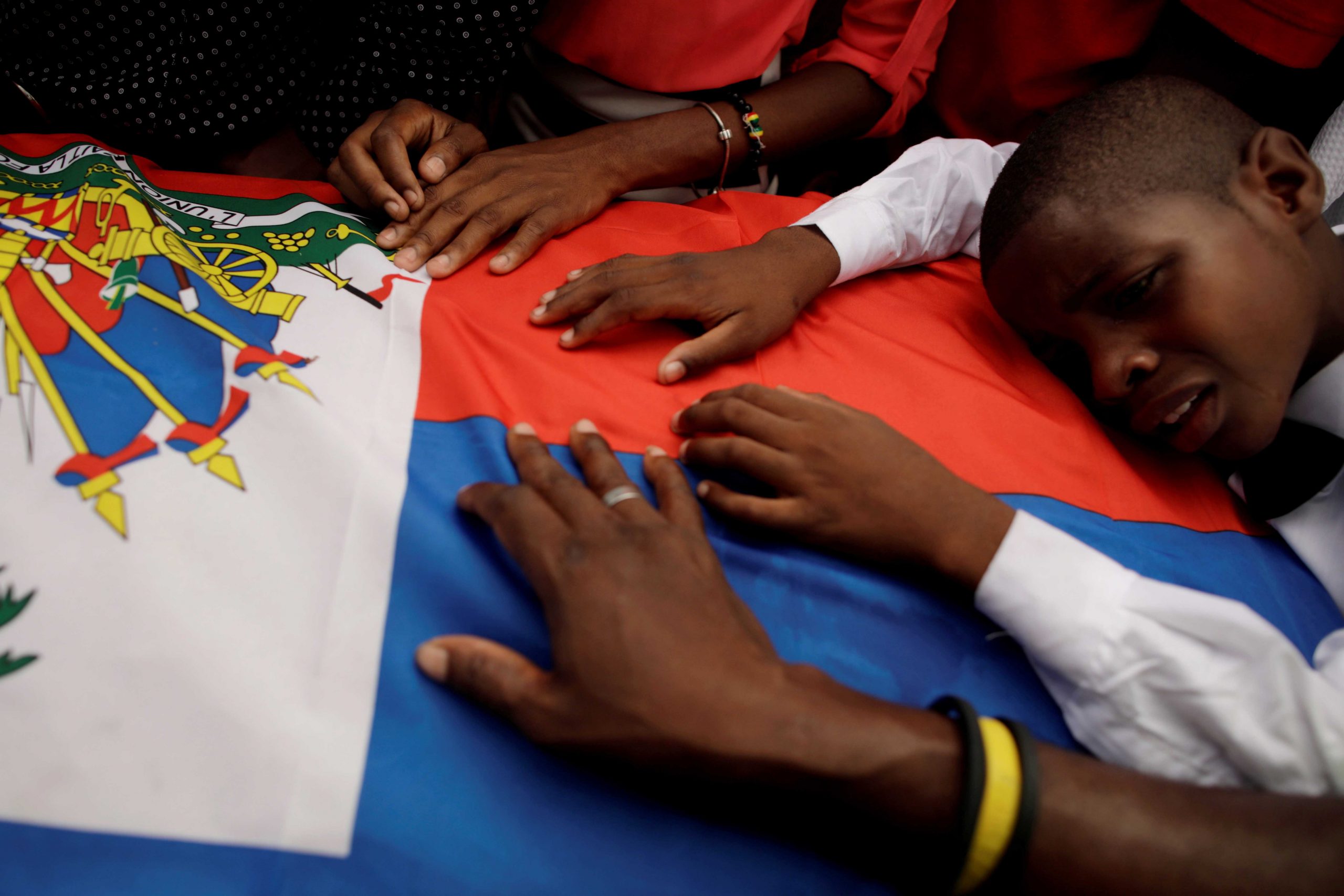Rebellion in Haiti
As popular protest gathers momentum in Haiti, a society long denied basic democratic rights by imperialism, solidarity is an urgent imperative.
Author:
1 November 2019

Modernity, and capitalism, were made on the back of genocide and slavery in the Caribbean and the Americas. The liberal revolutions in the United States in 1783, and then France in 1789, both entrenched and expanded slavery. But in San Domingo, the richest of the European slave colonies, enslaved Africans won their own freedom, after more than 12 years of war. On 1 January 1804, the island’s original name, Haiti, was restored and it was declared a free republic in which slavery was outlawed.
The revolution inspired anti-colonial resistance around the world, including the Cape Town slave revolt in 1808. Although the revolution in Haiti would, in time, come to mark the beginning of the end of the Atlantic slave trade, the reaction to the revolution on the part of the slave powers was swift and unrepentant. It would also prove to be unrelenting. In 1805, the French foreign minister Charles Talleyrand wrote to the US secretary of state, James Madison, that, “The existence of a Negro people in arms, occupying a country it has soiled by the most criminal acts is a horrible spectacle for all white nations.”
In 1825, France, with its warships anchored off the coast of the new republic, finally agreed to recognise Haitian independence in exchange for the payment of 150 million francs, which was reduced to 90 million in 1838, as compensation for the “property” lost when enslaved people had seized their freedom. The Haitian government took a loan from French banks at extortionate rates to make the payment. This marked the end of any prospects for the autonomy of the new republic. The debt, which incurred devastating social costs in Haiti, was finally paid off in 1947 at a cost of $21 billion in contemporary terms.
Related article:
In December 1914, the US government seized the Haitian government’s gold reserves and took them to City Bank in New York. In July the following year, the US invaded Haiti and occupied the country until 1934. The majority of the American soldiers sent to Haiti were from the South, and a brutal regime of racial domination was imposed. Up to 30 000 people were murdered by the occupying forces and Haitian laws were rewritten to allow American ownership of the economy.
An American-trained army was set up and a series of dictators backed by the US ruled Haiti with the support of that army. The most notorious of these American-backed dictators were François Duvalier and his son, Jean-Claude Duvalier, who ruled the country with blood and iron for almost 30 years. Their kleptocracy was backed by the army along with the Tonton Macoute, a murderous militia, perhaps analogous in some respects to the izinkabi that murdered with impunity in KwaZulu-Natal during the Jacob Zuma years.
Suppression and exploitation
Under the Duvaliers, trade unions were effectively banned, wages suppressed and public spending cut to the bone as the country became a profitable site for American firms to exploit low wage labour. But through the 1980s, popular resistance to the dictatorship, much of it aligned to liberation theology’s affirmation of equality and universal dignity, grew to the point where it was often asserted that Haiti, the Philippines and South Africa were the three most mobilised societies on the planet.
In late 1990, the same year that political possibilities were opening up in South Africa, Jean-Bertrand Aristide, a former Catholic priest and a key leader in the movement against the dictatorship, was elected as president with 67% of the vote. A coup attempt, mounted before he took office, was seen off with popular resistance. Aristide was inaugurated in February the following year and removed in a coup in September. Thousands of his supporters were murdered in the next few years.
Related article:
In 1994, American soldiers occupied Haiti again and remained in the country till March 1995. After years of intense political contestation, democracy was restored and Aristide was re-elected as president with 92% of the vote in late 2000. In 2003, he asked France to repay the money it had forced Haiti to pay as “compensation” after the revolution. On 1 January 2004, Haiti celebrated the bicentenary of the revolution. Thabo Mbeki was excoriated by liberal opinion in South Africa for attending the commemoration. On 29 February, Aristide was forced on to an American jet at gunpoint by US Marines, US troops reoccupied Haiti and a major assault was launched against Aristide’s supporters, mostly congregated in urban shanty towns.
The US-organised coup against an elected and extremely popular leader was strongly backed by liberal opinion in South Africa, and internationally by a number of major non-governmental organisations (NGOs) presenting themselves as ‘civil society’. Aristide’s party, still overwhelmingly popular, was prevented from competing in the elections that followed. After the 2010 earthquake, the country effectively came to be governed by NGOs, often, along with military force and the coercive power of debt, a central actor in contemporary forms of imperialism.
Popular protest
Today the popular classes in Haiti are back on the streets. Since early September, the country has been roiled by popular protest. The key demand has been for the immediate removal of the US-backed president, Jovenel Moïse. Opposition has also been expressed towards corruption and various neoliberal measures.
The gathering rebellion in Haiti is not isolated – there are thousands of people on the streets in Chile and Ecuador. The images of people confronting the police from behind barricades made from burning tyres look entirely familiar to South Africans. And a slogan often raised on the barricades, “Nou Gen Dwa Viv Tankou Moun” (We have the right to live like people), echoes the language of the ongoing, although much more scattered, rebellions in South African cities.
The series of road blockades that rocked Bolivia from late 1999 and into 2000 eventually resulted in fundamental change to that country. It is not impossible that the rebellion in Haiti, one that is increasingly taking on insurrectionary forms, may come, in time, to mark a fundamental breakthrough in the struggle to ensure the restoration of the country’s autonomy. But, of course, it is also possible that the rebellion will be met with the same violence that has consistently been used to contain popular aspirations in Haiti since the first moves were made to roll back the revolution of 1804.
In this moment of popular courage, political promise, and real risk, solidarity is an urgent imperative.


